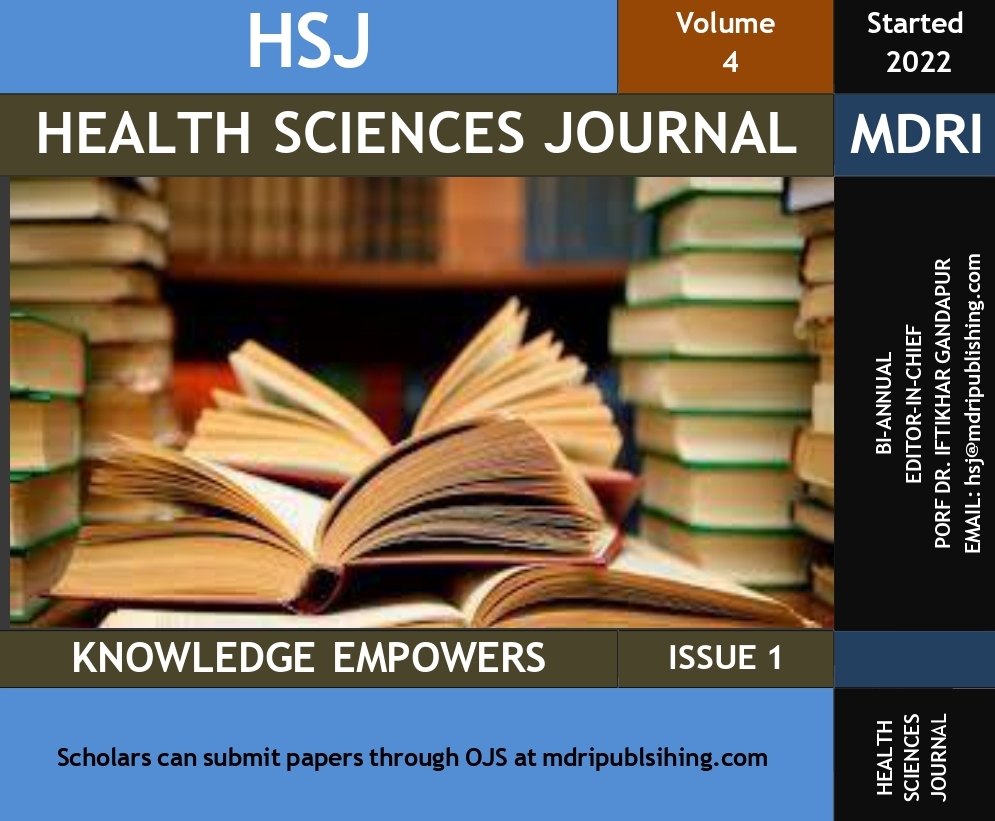ROLE OF SLEEP QUALITY IN SELF-DIRECTED LEARNING AND PSYCHOLOGICAL WELLBEING AMONG MEDICAL STUDENTS
DOI:
https://doi.org/10.59365/hsj.4(1).2025.148Keywords:
Sleep Quality (SQ), Self-Directed Learning (SDL), Psychological Wellbeing (PWB), Self-Directed learning Readiness Scale (SDLRS), Pittsburgh Sleep Quality Index (PSQI), Psychological Wellbeing (PWB), Regression Analysis, Correlational StudyAbstract
Aim: The aim of this study was to examine the relationship between sleep quality, self-directed learning, and psychological wellbeing among medical students. Using a correlational design and quantitative methods, the study sought to determine how sleep quality influences students’ learning abilities and mental wellbeing. Standardized measures were used to assess each variable, with findings revealing significant positive associations, highlighting the critical role of sleep in supporting both educational performance and psychological health. Methodology: This study used a quantitative, correlational research design to examine the relationship between SQ, SDL, and PWB among medical students. Data were collected through standardized self-report questionnaires (PSQI, SDLRS, and PWB Scale) from a sample of 267 students. A convenience sampling method was used, and SPSS 25 was used to analyze the data using regression analysis, correlation, and descriptive statistics. The purpose of the study was to ascertain how SQ predicts PWB and SDL. Results: The data analysis shown key insights into the relationships between SQ, SDL, and PWB among medical students. Descriptive statistics confirmed the demographic composition of the sample, with no missing data and acceptable psychometric properties for all study measures. Cronbach’s alpha values for the PSQI, SDLS, and PWB scales ranged from 0.67 to 0.80, indicating acceptable to good internal consistency. Correlational analysis showed significant positive relationships between sleep quality and both self-directed learning (r = .585, p < .01) and psychological wellbeing (r = .519, p < .01), as well as between self-directed learning and psychological wellbeing (r = .610, p < .01). Regression analyses further supported these associations. Sleep quality significantly predicted self-directed learning (β = .585, R² = .34, p < .001), accounting for 34% of the variance, and psychological wellbeing (β = .519, R² = .27, p < .001), accounting for 27% of the variance. These findings indicate that healthier sleep quality is associated with higher levels of self-directed learning and psychological wellbeing, highlighting its important role in academic and psychological outcomes among students. Conclusion: The study found significant positive associations between sleep quality, self-directed learning, and psychological wellbeing. Medical students with better sleep quality were more likely to engage in self-directed learning and reported higher psychological wellbeing. These results highlight sleep quality as a key factor supporting both academic self-regulation and mental health. Promoting healthy sleep habits can enhance student engagement and serve as a protective factor against psychological distress, reinforcing the need for institutional support and awareness initiatives targeting sleep hygiene.





